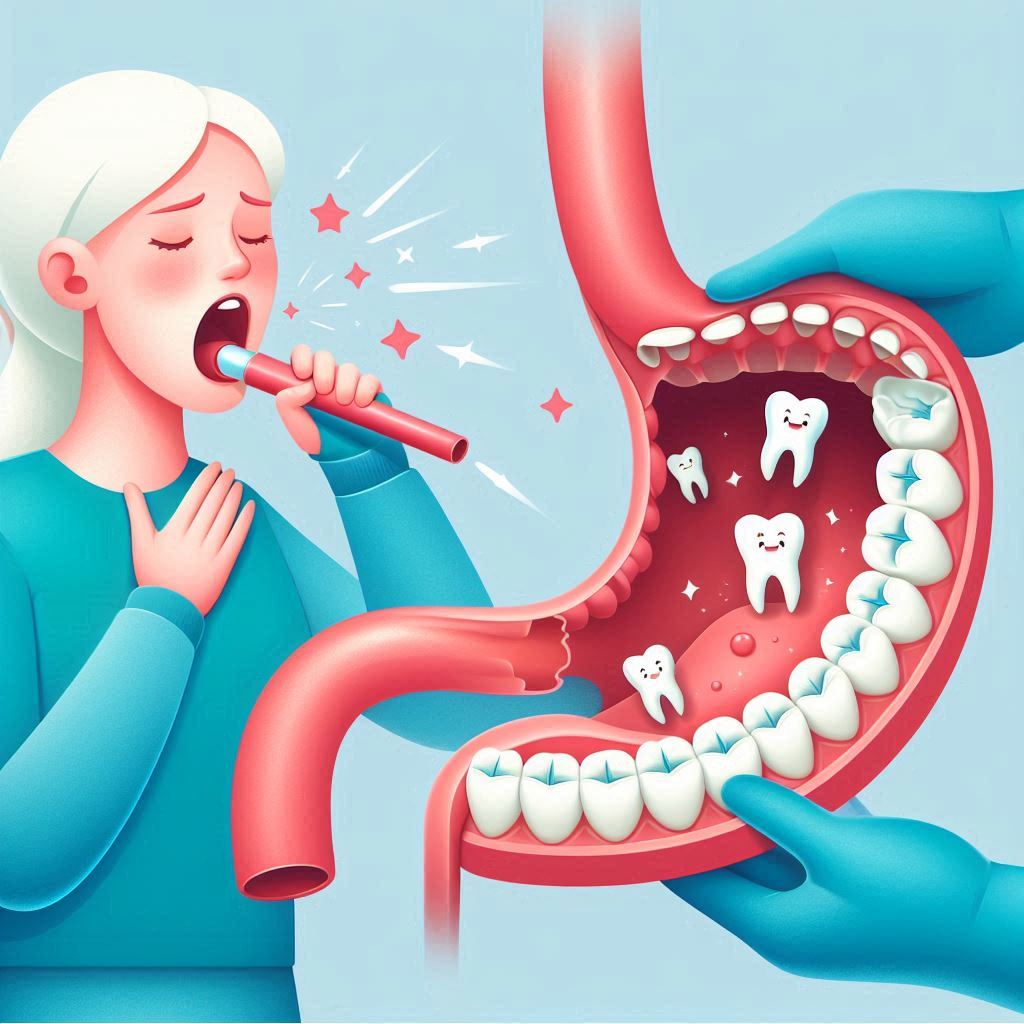Oral health is frequently viewed as a separate facet of personal hygiene, primarily involving regular brushing, flossing, and dental visits. However, recent research has revealed a complex interplay between oral health and both physical and mental well-being. This emerging understanding emphasizes that oral health is not just about maintaining a clean mouth; it plays a vital role in our overall health. For instance, poor oral hygiene can contribute to systemic issues such as heart disease, diabetes, and respiratory problems, highlighting the importance of a healthy mouth in preventing these conditions. Additionally, oral health can significantly affect mental well-being, with dental issues often leading to discomfort, pain, and even social withdrawal due to embarrassment. Recognizing the intricate connections between oral health and overall wellness encourages us to take a more integrated approach to health care. It’s essential to view oral health as an integral part of our overall health strategy, reinforcing the need for consistent dental care and effective hygiene practices. By understanding these relationships, we can make informed choices that enhance both our oral and general health, leading to a better quality of life.
The Importance of Oral Health
Understanding Oral Health
Oral health encompasses more than just the absence of cavities or gum disease; it includes the overall condition of the mouth, teeth, gums, and even the throat. It plays a critical role in various bodily functions, including:
- Eating and Digestion: Proper chewing is essential for breaking down food, which aids digestion and nutrient absorption.
- Speech: Clear pronunciation and communication are influenced by the alignment and health of the teeth and mouth structures.
- Social Interactions: A healthy smile boosts confidence and influences social dynamics.
Statistics and Impact
Statistics show that a significant portion of the population suffers from oral diseases. According to the World Health Organization (WHO), oral diseases affect nearly 3.5 billion people globally. Conditions like cavities and gum disease are among the most prevalent chronic diseases, highlighting the need for improved oral health awareness and care.
The Mouth-Body Connection: A Closer Look
The connection between oral health and overall health is rooted in biological and physiological processes. Here are some key areas where oral health influences overall health:
1. Heart Health
The link between oral health and cardiovascular disease is particularly noteworthy. Research has found that individuals with periodontal disease are at a higher risk for developing heart disease. The mechanisms behind this connection include:
- Inflammation: Gum disease causes chronic inflammation, which can lead to the hardening of arteries (atherosclerosis).
- Bacterial Spread: Oral bacteria can enter the bloodstream and attach to fatty deposits in the heart, promoting clot formation and increasing the risk of heart attack or stroke.
Studies and Findings
A landmark study published in the Journal of Periodontology found that patients with gum disease were 19% more likely to develop heart disease. Further research has established that maintaining good oral hygiene can reduce inflammation, potentially lowering the risk of heart-related issues.
2. Diabetes Management
Diabetes and oral health share a bidirectional relationship, meaning that each condition can exacerbate the other.
- Gum Disease and Diabetes: Individuals with diabetes are more susceptible to gum infections due to high blood sugar levels, which can impair blood flow and hinder healing.
- Impact on Blood Sugar Levels: Conversely, the presence of gum disease can make it more challenging to control blood sugar, leading to further complications.
Managing Diabetes Through Oral Care
For those living with diabetes, incorporating a robust oral hygiene routine is essential. Regular dental visits and proactive care can help manage both oral and systemic health. Research indicates that controlling gum disease can lead to improved glycemic control in diabetic patients.
3. Respiratory Health
Oral health can significantly impact respiratory health. The mouth serves as an entry point for bacteria, which can lead to respiratory infections, particularly in individuals with preexisting conditions.
- Bacterial Inhalation: Studies have shown that bacteria from the mouth can be inhaled into the lungs, leading to pneumonia and other respiratory diseases.
- Chronic Obstructive Pulmonary Disease (COPD): There is evidence linking gum disease to an increased risk of COPD, which can be aggravated by poor oral hygiene.
Preventive Measures
To reduce the risk of respiratory issues, individuals, particularly the elderly and those with chronic respiratory conditions, should prioritize oral hygiene. Regular dental cleanings can help mitigate the risk of bacterial infections that may affect the lungs.
4. Mental Health
The impact of oral health on mental well-being is often underestimated. Poor oral health can lead to significant psychological distress, affecting self-esteem and social interactions.
- Pain and Discomfort: Oral diseases often result in pain, which can lead to a decreased quality of life and mental health challenges.
- Social Withdrawal: Individuals with dental issues may avoid social situations due to embarrassment about their appearance or discomfort.
The Role of a Healthy Smile
Conversely, a healthy smile can enhance self-esteem and social confidence. Research indicates that individuals who maintain good oral health report higher levels of satisfaction in their personal and social lives.
5. Pregnancy Complications
Oral health is particularly crucial for pregnant women, as periodontal disease has been linked to adverse pregnancy outcomes, including:
- Low Birth Weight: Women with gum disease may be at a higher risk of having babies with low birth weight.
- Preterm Birth: There is evidence to suggest a connection between gum disease and premature labor.
Importance of Prenatal Care
Pregnant women should prioritize oral health care, ensuring regular dental check-ups and practicing good oral hygiene to reduce the risk of complications.
The Economic Impact of Poor Oral Health
Financial Burden on Healthcare Systems
The economic implications of neglecting oral health are significant. Dental diseases can lead to expensive treatments and hospitalizations, straining healthcare systems. According to the American Dental Association (ADA), the total economic burden of oral diseases in the U.S. amounts to billions annually, highlighting the need for preventive care.
Personal Financial Strain
Beyond societal costs, individuals often face substantial out-of-pocket expenses for dental treatments. This financial burden can deter people from seeking necessary care, perpetuating the cycle of poor oral health and systemic issues.
Promoting Oral Health for Better Well-Being
To mitigate the negative impacts of poor oral health, it is essential to adopt comprehensive oral hygiene practices. Here are several key strategies to enhance oral health:
1. Regular Brushing and Flossing
Daily oral hygiene routines should include:
- Brushing: Use fluoride toothpaste to brush twice daily, focusing on all surfaces of the teeth and gums.
- Flossing: Daily flossing helps remove plaque and food particles from between teeth, reducing the risk of gum disease.
2. Routine Dental Check-Ups
Regular visits to the dentist for cleanings and check-ups are vital for maintaining oral health. Dentists can identify issues early, provide professional cleanings, and offer guidance on maintaining good oral hygiene.
3. Healthy Diet
A balanced diet plays a critical role in oral health. Key dietary considerations include:
- Limit Sugar Intake: Sugary foods and beverages contribute to cavity formation. Reducing sugar consumption can significantly benefit oral health.
- Nutrient-Rich Foods: Incorporate fruits, vegetables, whole grains, and dairy products to provide essential nutrients for healthy teeth and gums.
4. Hydration
Staying hydrated is crucial for maintaining saliva production, which plays a protective role in oral health. Saliva helps neutralize acids and wash away food particles, reducing the risk of cavities and gum disease.
5. Avoid Tobacco Products
Tobacco use is a significant risk factor for oral diseases, including gum disease and oral cancer. Quitting smoking and avoiding tobacco products can lead to substantial improvements in oral and overall health.
6. Stress Management
Managing stress is vital for maintaining both oral and overall health. High stress levels can lead to habits like teeth grinding (bruxism), which can damage teeth and contribute to jaw pain. Techniques such as mindfulness, exercise, and hobbies can effectively reduce stress levels.
Community and Public Health Initiatives
- Raising Awareness: Public health initiatives play a crucial role in raising awareness about the importance of oral health. Educational programs aimed at children and adults can help foster good oral hygiene habits from a young age.
- Access to Care: Improving access to dental care, particularly for underserved populations, is essential. Community health programs and mobile dental units can provide necessary services to those who may not have regular access to dental care.
- School-Based Programs: Implementing oral health programs in schools can help educate children about the importance of oral hygiene and promote healthy habits early on. Programs that provide fluoride treatments and dental screenings can also help reduce the prevalence of dental diseases in children.
The Future of Oral Health
- Advances in Research: Ongoing research continues to uncover new connections between oral health and systemic conditions. This research will likely lead to innovative approaches in preventive care and treatment, emphasizing the importance of a holistic view of health.
- Integration of Care: The integration of dental care into primary healthcare systems is gaining attention. By recognizing the interconnectedness of oral and systemic health, healthcare providers can offer more comprehensive care that addresses the full spectrum of patient health.
- Technology and Innovation: Technological advancements, such as tele dentistry and AI-driven diagnostic tools, are transforming the way oral health care is delivered. These innovations can increase access to care and improve patient outcomes.
Conclusion
The connection between oral health and overall well-being is profound and significant. Good oral health impacts various aspects of our lives, including heart health and mental well-being. By prioritizing effective oral hygiene practices, seeking regular dental care, and promoting awareness in our communities, we can cultivate a healthier society. Recognizing that oral health is a crucial component of overall health empowers us to take proactive steps in our daily routines. Simple actions, such as brushing and flossing regularly, can make a substantial difference. Additionally, visiting the dentist for routine check-ups helps prevent potential issues before they escalate.
A commitment to maintaining oral health not only enhances our smiles but also contributes to a happier, healthier life overall. By embracing this vital connection, we can improve our physical health and mental well-being. Investing in oral care is an investment in our overall health, reinforcing the idea that a healthy mouth is integral to a healthy body. Take charge of your oral health today, your body and mind will thank you for it.
SOURCES
Kennett Dental – The Surprising Link Between Dental Hygiene and Your Overall Health
Dentistry UIC – The Surprising Connections Between Oral Health and Well Being
ABQ Orthodontics – The Surprising Link Between Oral Health and Overall Wellbeing
Summerland Dental – The Surprising Connection: How Your Oral Health Can Impact Your Overall Wellbeing
Dental DPU – The Surprising Connection Between Your Oral Health and Overall Well-being
HISTORY
Current Version
October 14, 2024
Written By:
SUMMIYAH MAHMOOD




